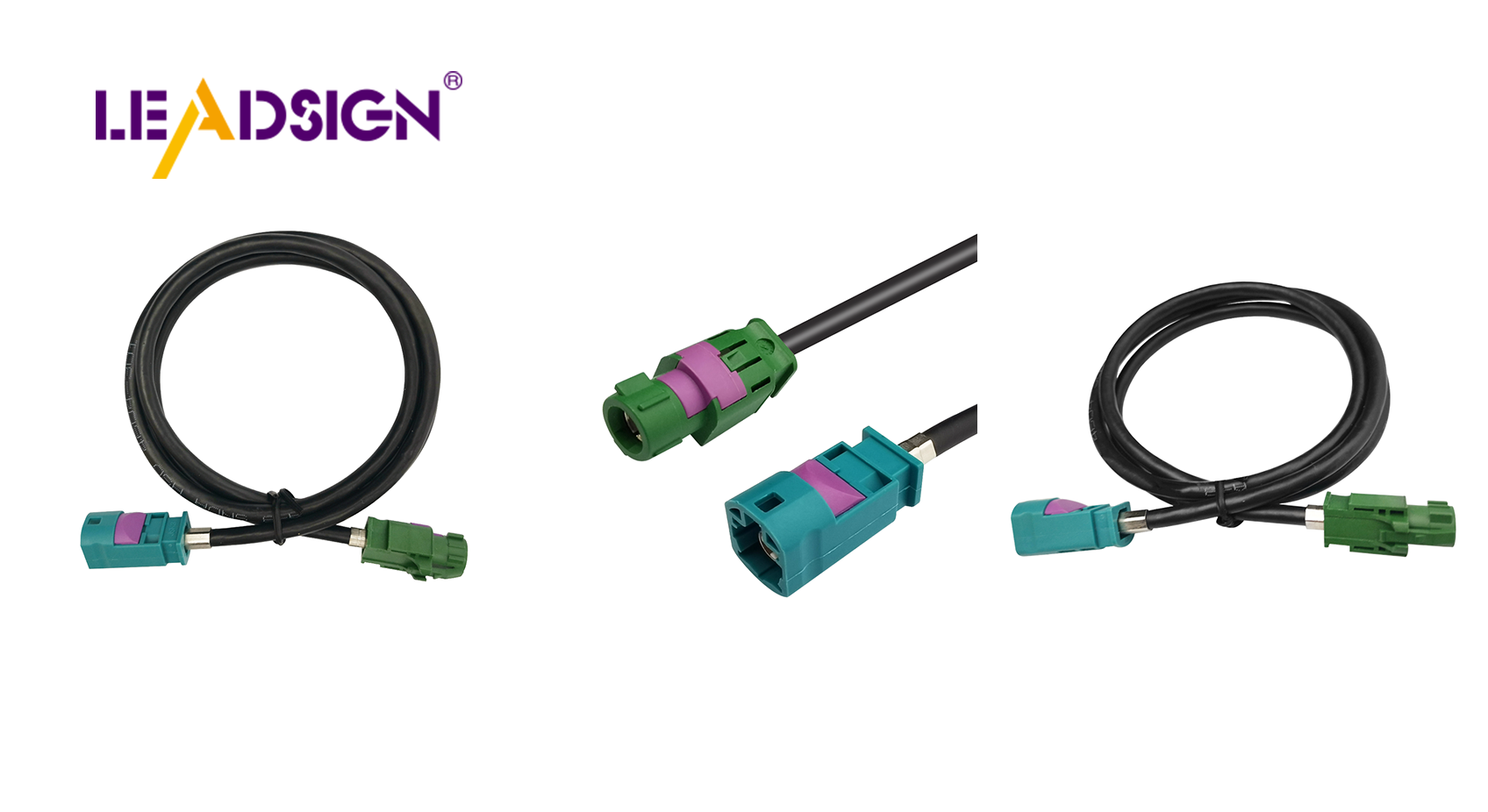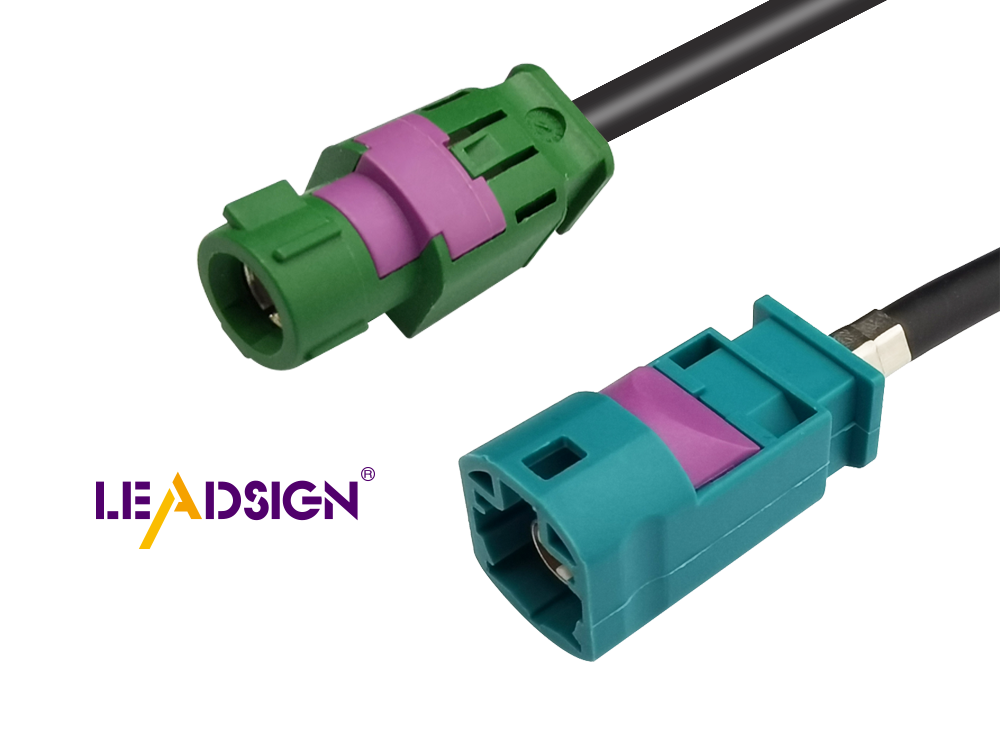Understanding Automotive Wiring Connector Types

Automotive wiring connector types are crucial in cars. They play a significant role in connecting various car components effectively, enhancing the performance and safety of vehicles. Understanding the different automotive wiring connector types is essential for car repair and maintenance. The automotive wiring connector market is rapidly expanding and is projected to reach a value of USD 20.33 billion by 2030. This growth underscores the importance of these connectors in modern-day vehicles. Familiarizing yourself with these types enables you to make informed decisions, ultimately enhancing the longevity and efficiency of car systems.
Basics of Automotive Wiring Connector Types

What are Wiring Connectors?
Definition and Purpose
Wiring connectors are important parts in cars. They connect wires or cables, helping them work together. This makes sure power and signals move through the car. These connectors help manage the many wires in modern cars. They make sure all electric parts work well together.
Importance in Automotive Systems
In cars, wiring connectors are very important. They keep electrical connections safe and working right. Without them, wires could fail and cause problems. Knowing about different connector types helps you choose better for your car's health.
Overview of Automotive Wiring Connector Types
Blade Connectors
Blade connectors are flat metal pieces that fit into slots. They hold tight and are used a lot in cars. These connectors are simple to use and easy to disconnect when needed.
Pin Connectors
Pin connectors have a pin and a socket that join together. They connect sensors and electronics in cars well. Pin connectors stay connected even with shakes or bumps.
Butt Connectors
Butt connectors link two wire ends together. They're used to fix or extend wires in cars by crimping them on tightly. Heat shrink ones keep out water and dust too.
Ring and Spade Connectors
Ring and spade connectors attach wires to terminals or studs. The ring is round; the spade looks like a fork with an open end. They're used for grounding or battery links because they're easy to put on or take off.
Specific Types and Their Uses
Knowing different automotive wiring connector types helps you choose wisely for your car's electrical system. Each type has special uses and benefits.
Weatherproof Connectors
Features and Benefits
Weatherproof connectors keep your car's wires safe from bad weather. They have seals that block water, dust, and dirt. This keeps your car's electrical parts working well in all weather. Using these connectors lowers the chance of rust or wire problems, saving you money on repairs.
Common Uses in Cars
You find weatherproof connectors where they face rain or dirt, like under the hood or outside the car. They're great for connecting lights like headlights and taillights. These connectors are also used in engines where water and dirt are common. Picking weatherproof connectors makes your car's electric parts last longer.
High-Performance Connectors
Characteristics
High-performance connectors work well under tough conditions with lots of electricity. They are made strong to handle heat and shaking. These connectors stay connected firmly, making sure everything works right even when it's hard.
Uses in Fast Cars
In fast cars, these connectors are found in important systems like engines and fancy radios. They're also used in race cars needing top electric performance. By using high-performance connectors, your car runs its best even when driving is tough.
Expert Opinion: "Wire connectors make strong links between devices safely." - LEADSIGN-AUTO
By learning about these specific automotive wiring connector types, you can pick better for your car's electric system. Whether needing weatherproof ones for safety or high-performance ones for tough jobs, choosing right improves your car’s safety and performance.
Installation Tips and Good Habits
Knowing how to install automotive wiring connector types is important. Doing it right makes sure connections last long. It helps your car's electrical parts work well. Let's see what tools you need and the steps to follow for a good installation.
Tools You Need
To put in automotive wiring connector types, use the right tools. These tools help make strong connections.
Must-Have Tools
Wire Strippers: Take off wire covers without harm.
Crimping Tool: Attach connectors tightly to wires.
Screwdriver: Use for screws on connectors.
Multimeter: Check if electricity flows correctly.
Extra Tools for Easier Work
Heat Gun: Seals heat-shrink connectors from water.
Cable Ties: Keep wires neat and tidy.
Label Maker: Mark wires for easy finding later.
Easy Installation Steps
Follow these steps to fit automotive wiring connector types properly. Right installation stops problems and keeps your car's electric system working well.
Getting Wires Ready
Cut the Wire: Trim wire to needed length.
Strip Insulation: Remove half-inch of cover with strippers.
Twist Strands: Twist bare strands together for easy fitting into connector.
Joining the Wires
Pick Connector: Choose based on wire size and use.
Insert Wire: Push end into connector till it touches metal part.
Crimp Connector: Squeeze connector onto wire firmly with crimper.
Making Connection Safe
Check Connection: Ensure wire is tight, and crimp is good.
Test Connection: Use multimeter to see if electricity moves right.
Seal Connection: Heat-shrink connectors? Use heat gun to seal against wetness.
Expert Advice*: "Using right, good-quality connectors makes safe electric links." - Wirefy Shop*
By using these tips and habits, you can fit your car’s wiring connectors well. This boosts your car’s electric system performance and cuts down repair needs often needed otherwise! Remember, picking the best tools and connectors is key for lasting setups!
Common Problems and Fixes
Knowing common problems with automotive wiring connector types helps keep your car's electrical system working well. Spotting issues early can stop bigger problems later.
Finding Usual Issues
Loose Connections
Loose connections happen often in automotive wiring connector types. You might see lights flicker or lose power sometimes. This means connectors aren't holding wires tight enough. Driving vibrations can make them loose over time. Check your connectors often to make sure they stay tight.
Rust Problems
Rust is another usual issue with automotive wiring connector types. Water and dirt can cause rust, stopping electricity flow. You might find green or white stuff on connectors, showing rust is there. This can make parts work poorly or fail completely.
Fixes and Prevention Tips
Regular Care Advice
Regular care stops problems with automotive wiring connector types. Look at connectors now and then for wear or damage signs. Clean them gently to get rid of dirt and junk. Make sure all connections are tight and safe. Doing this keeps your car's electric system in good shape.
Using Protective Layers
Putting protective layers stops rust in automotive wiring connector types. Use special grease to cover connectors, blocking water and dirt out. These layers help connectors last longer and make your car's electric system more reliable.
Expert Tip: "Regular checks keep your car's wiring connectors great." - Auto Maintenance Guide
By fixing these common issues and using prevention tips, you keep your automotive wiring connector types lasting long and working well. This careful way boosts your car’s performance and cuts down on costly repairs.
Picking the right car wire connectors is very important. It makes sure your car's electric parts work well and safely. Choose connectors that fit the wire size, power use, and weather. This helps your car last longer and work better. Installing them correctly and taking care of them keeps connections strong. Connectors are key for safe driving and good car performance. Taking care of them stops expensive fixes and makes driving smoother and safer.
See Also
Exploring HSD Connectors in Automotive Sector
Significance of Fakra Connectors in Contemporary Cars
Navigating Ford Fakra Connectors

